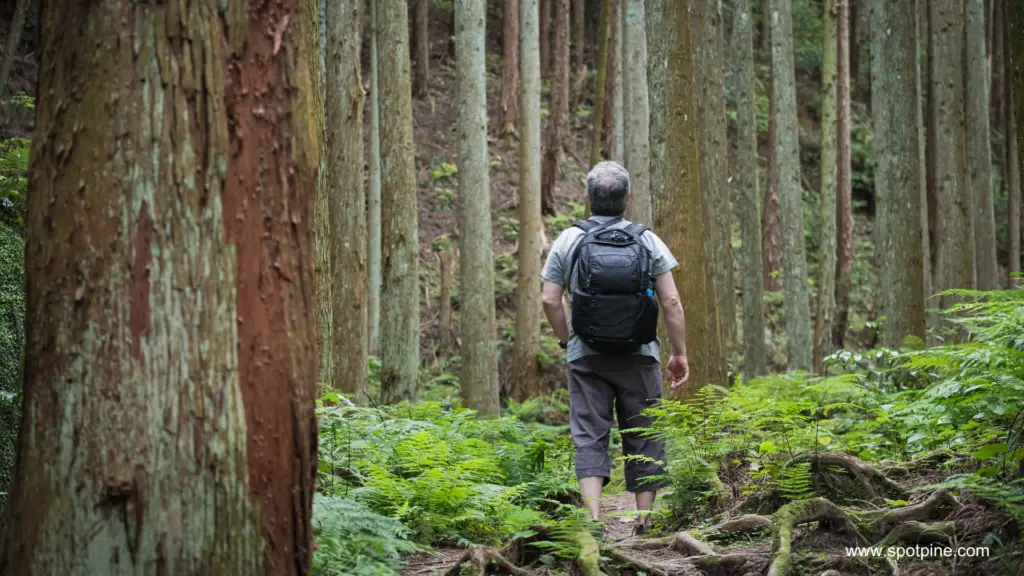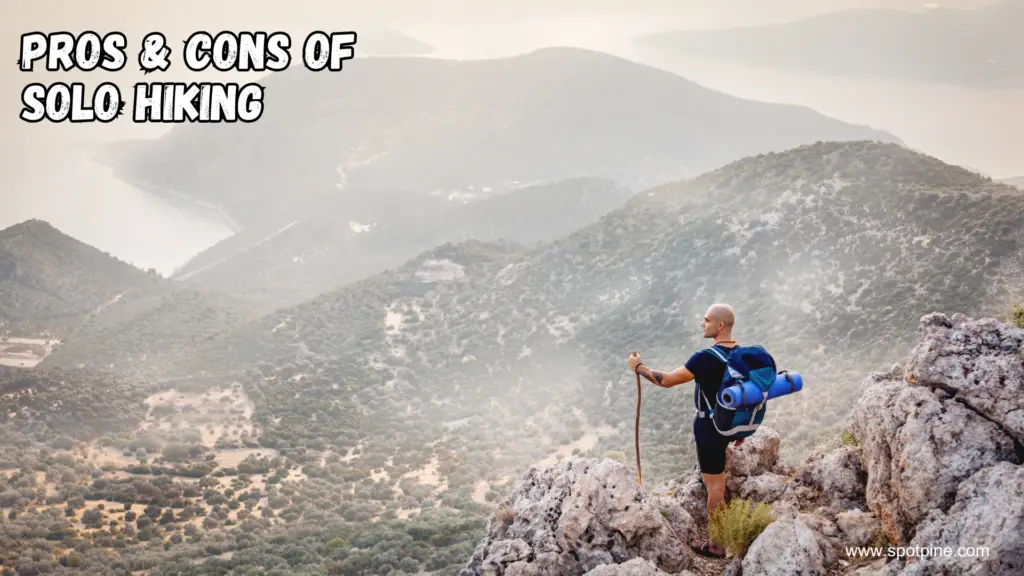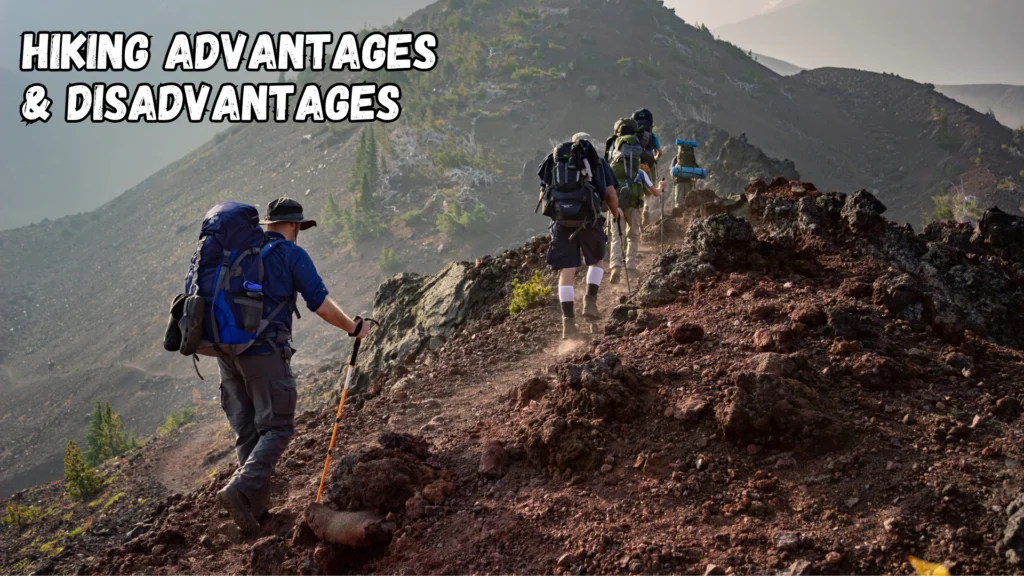Solo hiking has its pros and cons. The advantage is that it allows you to go wherever and whenever you like, disconnect from technology and distractions, set your own pace and itinerary, and experience a sense of independence and accomplishment.
The disadvantages include safety concerns, loneliness, not having anyone to help if needed, having to handle everything on your own, and the potential dangers of wildlife, getting lost, getting an injury, dehydration, and bad weather. Despite the risks, many people enjoy solo hiking as a way to connect with nature and themselves.
However, it is essential to prepare thoroughly and educate yourself on safety basics before heading out on your own.
Advantages Of Solo Hiking
Solo hiking allows for independence, self-discovery, and setting your own pace and itinerary. However, it can also pose safety risks and the lack of companionship may lead to feelings of loneliness. Overall, solo hiking is a personal choice that requires careful planning and awareness of potential hazards.
| Advantages of Solo Hiking |
| Setting Your Own Pace |
| Hiking alone allows you to set your own pace without worrying about others’ physical abilities or desires. This means you can go faster, take more breaks, or even stop and appreciate the scenery whenever you want, making the trip more enjoyable for you. |
| Setting Your Own Routine |
| When hiking alone, you can also set your own schedule and routine without needing to coordinate with a group or partner. You can plan your trip based on personal preferences, interests, and goals, adding more freedom and flexibility to your adventure. |
| Sense of Achievement and Independence |
| Hiking solo can also bring a sense of accomplishment and independence. You rely solely on yourself to complete the hike, and the obstacles and challenges you face on the trail can help build confidence and resilience. The feeling of conquering a difficult hike alone can be incredibly rewarding. |
Disadvantages Of Hiking Alone
Although solo hiking can provide a sense of independence, self-discovery, and a chance to disconnect from technology and distractions, there are some disadvantages. Hiking alone can create feelings of loneliness, increase safety concerns, and make it harder to split costs or transport.
It also increases the risk of dangers like getting lost or injured, encountering wildlife, dehydration, and weather conditions.
| Disadvantages of Hiking Alone | |
| Loneliness: | Solo hiking can be a lonely affair as there is no one to share the experience with. It can be difficult to stay motivated when there is no one to talk to or to share the workload with. |
| No help available: | If something goes wrong on the trail, there is no one to help. Injuries, getting lost, or encountering dangerous wildlife can put solo hikers in a dangerous situation without any help nearby. |
| Responsibility for everything: | Solo hikers have to be responsible for everything from planning the trip to carrying all the necessary equipment. There is no one to share the burden of responsibility. |
| Dangers of Hiking Alone: | Wildlife, getting lost, injuries, dehydration and bad weather are all dangers that solo hikers face. It can be difficult to handle these situations alone. |
Solo hiking can be an amazing experience for those looking to get away from the stress of daily life. However, it is important to recognize the disadvantages and to be prepared. Solo hikers may face loneliness, have no help available if something goes wrong, be responsible for everything, and face various dangers. It is essential to take precautions and be prepared for any situation that may arise on the trail.
Read About Hiking Advantages And Disadvantages
Benefits Of Solo Hiking
Solo hiking has its fair share of pros and cons. The benefits of solo hiking include the freedom to hike whenever and wherever you want, disconnect from technology and distractions, set your own pace and itinerary, and a sense of accomplishment.
However, there are also downsides such as loneliness, lack of help in case of emergency, and the risk of encountering dangers such as wildlife, getting lost, or injured.
| The Pros of Solo Hiking | The Cons of Solo Hiking |
| Freedom and independence | Safety |
| Opportunity to disconnect from technology | You can’t split costs |
| Personal growth and connection with nature | Transport becomes harder |
| You can set your own pace | Scary noises at nighttime |
| You can set your own routine | Loneliness |
| A sense of achievement | Not having someone to go for help if needed |
Solo hiking has its advantages and disadvantages. The pros include freedom and independence, an opportunity to disconnect from technology, personal growth and connection with nature, as well as the ability to set your own pace and routine. It also gives you a sense of achievement. The cons, on the other hand, include safety concerns, the fact that you can’t split costs with anyone else, transport becoming harder, scary noises at nighttime, loneliness, and not having someone to go for help if needed. It’s important to weigh both the pros and cons before deciding if solo hiking is right for you.

Preparing For Solo Hiking
Before you embark on your solo hike, it’s important to educate yourself on safety basics. This includes understanding potential dangers such as wildlife encounters, getting lost, and dehydration. Plan and prepare for the hike by researching the trail, checking weather conditions, and packing necessary gear such as a map, compass, and first aid kit. Consider carrying communication devices such as a cell phone or personal locator beacon in case of emergencies.
FAQs:
What Are The Disadvantages Of Hiking Alone?
Solo hiking has several disadvantages. Firstly, it can be unsafe. If something goes wrong, no one will be there to help. Secondly, it can get lonely without anyone to share the experience. Finally, all costs of transportation would have to be borne alone.
Is It A Good Idea To Go Hiking Alone?
Solo hiking has its pros and cons. Some benefits of hiking alone are: you can go whenever and wherever you want, it allows you to disconnect from technology and distractions, and you can set your own pace and itinerary. On the other hand, there are some potential risks and disadvantages, such as loneliness, not having someone to help in case of an emergency, and being solely responsible for your own safety.
Why Do You Think Hiking Alone Is A Risky Behavior?
Hiking alone is considered risky due to potential dangers such as getting lost, wild animals, injuries, dehydration, and weather changes. Going with a group or partner is safer in case of emergencies and can also provide companionship on long hikes.
Is It Okay To Hike On Your Own?
Hiking alone can be a rewarding experience, but there are risks. You must prepare yourself and educate yourself on safety basics before you head out. Benefits of solo hiking include going whenever and wherever you want, disconnecting from technology and distractions, and setting your own pace and itinerary.
However, there are cons like loneliness, being responsible for everything, and potential dangers like wildlife and getting lost.
Conclusion
To sum it up, solo hiking can be both exhilarating and terrifying at the same time. It allows one to disconnect from the world and connect with nature, but it also requires a lot of preparation and caution. The advantages include setting your own pace and itinerary, a sense of accomplishment, and being responsible only for yourself.
However, the cons include loneliness, safety concerns, and not having someone to share the experience with. Ultimately, it is up to the individual to weigh the pros and cons and make an informed decision on whether solo hiking is right for them.




Pingback: Is It Safe to Hike Alone? Essential Tips - SpotPine